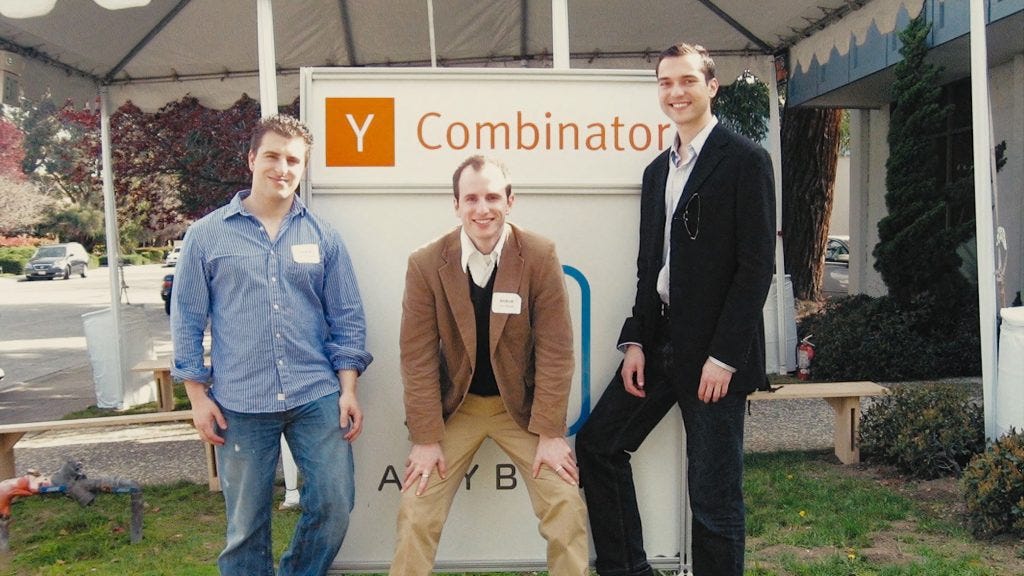Future Work/Life is my newsletter in which I explore ideas focused on the future of work and how to design legendary careers. Every week, I share something I’ve written, a few things I’ve enjoyed reading, and something great to listen to. If you find it interesting, please share it!
Things that scale
The internet is very big.
What a blindingly obvious statement to make, I'm sure you're thinking. But seriously, like anything truly enormous, it isn't easy to wrap your head around the sheer scale of it. I'm not talking about the technical architecture or even the number of websites. I'm referring to the billions of people online and, by extension, the potential opportunities you can unlock by connecting with only a tiny slither of them.
If you know where to look, you can discover thousands, if not millions, of:
People with whom you share similar interests and tastes.
Ways to learn new things about subjects you've never before encountered.
Potential customers willing to pay if you can help them solve their many, varied problems.
I've been reflecting on this after hearing my future of work friend and former podcast guest, Dror Poleg, on Scott Galloway's show the other day.
Dror's written extensively about the possibilities of productising and scaling yourself online, but he also issued a warning last week. Although some will benefit exponentially from the reach provided by the internet, all will not be equal. Because the downside of being able to access the best talent wherever they're located in the world is that everyone wants to work with them, not their less talented peers.
So should we all resign ourselves to fighting for scraps while the very best mop up all the value? Of course not. Wouldn't that be depressing?!
But to capitalise on this trend rather than capitulate to it requires adopting a different mindset: one that focuses on doing things that don't scale.
Let me explain.
Things that don’t scale
One of my favourite essays is investor and Y Combinator founder Paul Graham's "Do Things That Don't Scale". In it, he shares lessons from the thousands of start-ups he's observed over the years. What the best of them realise is being small and having few customers can be an advantage if you use your time wisely.
Stripe's founders, John and Patrick Collison, for example, would sit down next to new clients to personally set up their user accounts, ensuring they were able to start using the service immediately.
And Airbnb's founders Brian Chesky Joe Gebbia, used to go door-to-door to recruit new users and pay a professional photographer to make their listings look better.
As Graham explains:
"[One] reason founders don't focus enough on individual customers is that they worry it won't scale. But when founders of larval startups worry about this, I point out that in their current state they have nothing to lose. Maybe if they go out of their way to make existing users super happy, they'll one day have too many to do so much for. That would be a great problem to have. See if you can make it happen. And incidentally, when it does, you'll find that delighting customers scales better than you expected. Partly because you can usually find ways to make anything scale more than you would have predicted, and partly because delighting customers will by then have permeated your culture.
I have never once seen a startup lured down a blind alley by trying too hard to make their initial users happy."
The point is that before scaling, every company - and now individual - has to work relentlessly hard to build connections with customers and to understand what they care about.
How does that relate to individuals building a career?
The internet is Tokyo
The best description I've heard to help visualise the internet's size remains Derek Thompson's. In an interview with Bloomberg's Masters in Business podcast in 2017, he explained:
"People who want to be big sometimes think, "I have to immediately reach the largest possible audience." But in a weird way, the best way to produce things that take off is to produce small things. To become a small expert. And the reason why I think this is true I call my Tokyo example.
If you go to Tokyo, you'll see there are all sorts of really, really strange shops. There'll be a shop that's only 1970's vinyl and like, 1980's whisky or something. And that doesn't make any sense if it's a shop in a Des Moines suburb, right? In a Des Moines suburb, to exist, you have to be Subway. You have to hit the mass-market immediately. But in Tokyo, where there are 30-40 million people within a train ride of a city, then your market is 40 million. And within that 40 million, sure, there's a couple thousand people who love 1970's music and 1980's whisky.
The Internet is Tokyo. The internet allows you to be niche at scale."
So, it’s possible to be niche at scale, but building that expertise requires a willingness to take your research and creative experimentation above and beyond what seems sensible.
I can relate. Over the past couple of years, I've published over 100 podcasts. In every case, I've:
Personally invited every single guest with a well-considered email.
Ensured I research thoroughly and ask questions that matter to me & listeners.
Edited the pod myself, digging into which ideas to expand upon in my writing.
Followed up with an article or newsletter exploring ideas we discussed.
Kept in touch with guests to build our relationship.
Most people would say that I should be outsourcing one or most of that list, but, for now, at least, each of these things is providing me with significant value. Such as an opportunity to develop my ideas and point of view, build relationships with guests I'd otherwise pay to learn from, and attract new collaborators and future clients by consistently sharing great content.
Since time is obviously finite, the trick is to try to identify where these three things intersect:
A subject you really care about
A problem that really needs to be solved (or explored, at least)
A willingness to work really hard to apply your unique set of skills.
Will I manage every aspect of my podcast forever? Perhaps not, but for the time being, it's helping me build a reputation in a new category, which I then leverage through the distribution offered by the internet.
(The right) things that don't scale + internet-sized distribution = exponential opportunities.
Have a lovely weekend,
Ollie
My book, Work/Life Flywheel: Harness the work revolution and reimagine your career without fear, will be published on 17th January 2023. You can pre-order your copy HERE.
The Listening:
If you missed the link to Dror’s appearance on the Prog G show above, you can listen here: Dror and Scott discuss:
Why Big Cities Will Become Bigger Even When People Can Work Anywhere
Why Cities Will Struggle to Adapt to a Post-Office World
The Link Between Inequality and Opportunity
Remote Work and the Scalable Imagination
TikTok and China's War on Memes
The Reading:
Conflicting opinions on the value of employee surveillance technology:
This tweet points out the downside:
Whereas this article in WorkLife reports “how employee monitoring has shifted from creepy to empowering HR teams”. Really?!
What’s the right amount of chilling out you should be doing every day? It turns out there is too much. In this article, psychologist Cassie Holmes writes:
“Two to five hours of free time in a day is ideal for boosted happiness. Having less than two hours or more than five hours of free time a day, however, decreased happiness.”
What you do in your free time is important too, so here are her tips:
Get moving
Practise acts of kindness
Experience awe (social interactions, art, nature and witnessing accomplishment)
And finally, this tweet from Brad Stulberg explains what happens if we value to wrong things:
What does make you well?
Autonomy
Belonging
Meaning
Mastery
Health









